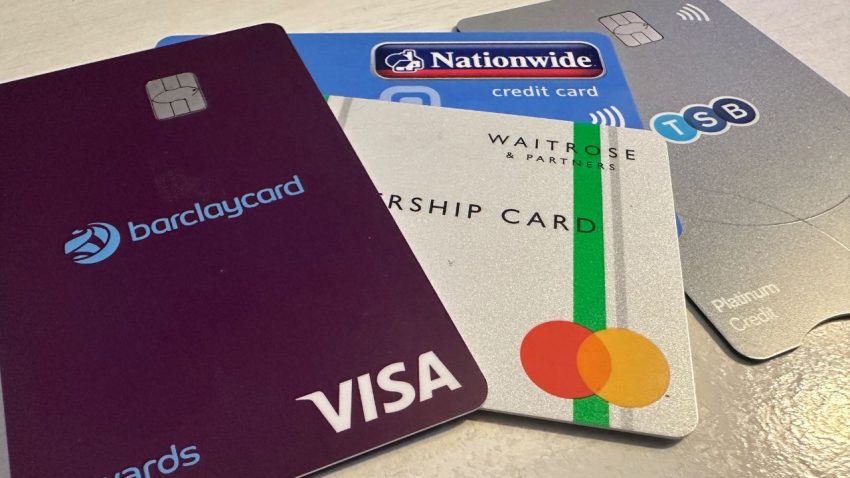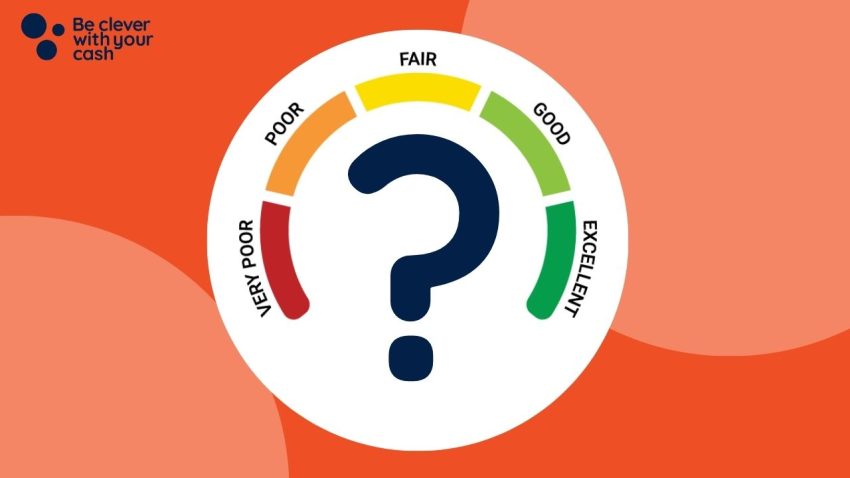Simple rules that’ll boost your credit report.
Your credit report is incredibly useful. The better it is, the more likely it is you’ll get the best deals on mortgages, credit cards and loans. And not having much of one could also damage your chances of getting new current accounts or mobile phone and utility contracts.
Fortunately, there are some simple things you can do to improve your credit file, which you’ll see reflected in a higher credit score.
Below you’ll find 14 different things you can do right now (or keep doing) that’ll make all the difference.
Some articles on the site contain affiliate links, which provide a small commission to help fund our work. However, they won’t affect the price you pay or our editorial independence. Read more here.
14 ways to improve your credit rating
1. Register to vote
This is improving your credit score 101. Easy to do and essential. Being registered to vote will prove who you are and where you live. Ideally register at your permanent address, rather than temporary ones such as student or military accommodation.
If you can’t vote because you’re not living in the UK or not a British, Irish or Commonwealth citizen then you can add a note to your report explaining this. You’ll need to send documents to show where you live and how long you’ve lived there.
2. Pay your bills on time
Paying your bills and cards on time is really important. You’ll show you’ve got the ability to manage credit and also avoid nasty and expensive defaults and charges for late payments.
Setting up Direct Debits will mean there’s no chance you’ll forget to do this – just make sure you’ve enough in your current account to cover the payment. You might be able to change the date of these bills so they’re just after payday when you’re guaranteed cash in your account.
3. Pay the full amount
With credit cards you need to pay at least the minimum every month to avoid penalties. But clearing the full amount isn’t just going to save you money through avoiding interest, it’ll also show lenders you’re not struggling to repay existing debts.
4. Be consistent
It’s also good to show consistency and stability. So that means having the same address and contact details on all your bills and banks. Try to remember this when you make applications.
5. Check for errors or fraud
That consistency extends to existing credit accounts, so check your three different credit files (it’s free) to make sure everything is accurate and there aren’t any obvious mistakes.
So, start with addresses, and update any old ones with the provider, but look also for missing accounts.
Check that all the accounts shown are ones you’ve opened yourself. It’s possible someone could have taken out a mobile contract or even a credit card in your name.
6. Monitor any financial links
You might think you’re doing all the right things, but what about anyone you share an account with? Joint products such as current accounts and loans link you with the other person, whether that’s a partner, parent or housemate.
If they have a poor credit report, it’ll impact yours. So it might make sense to keep things separate. And if you’ve split up with someone or moved out of a house share you should ask the credit reference agencies for a notice of disassociation on your accounts. This will stop the connections. Obviously you’ll want to close down those joint accounts too.
How to request a notice of disassociation
- Expedia has an online form to request the Notice of disassociation.
- Equifax ask you to fill in a form
- TransUnion says you need to raise a dispute on your account
7. Keep some old accounts
I’m a big fan of bank switching to get some free bonus cash, but doing this repeatedly on a single current account will mean you lose long-standing relationships. These are great signals of stability, so if they are closed your score will fall.
So don’t switch? No, but I’d suggest you have additional accounts you use to do this, and keep one older account open to maintain this boost.
Can switching bank affect my score?
Each time you open a new account it’ll be shown as a credit application on your file. So too many of those can have an impact on your credit score.
But it’s all about the wider context of other hard searches made around the same time. It shouldn’t affect applications for things like energy bills and mobile phones, but it might for mortgages. So space the switches out if you’re likely to also go for something else soon.
It’s also worth considering if switching away means you’re terminating a long-term relationship on your score. Most people have been with the same bank for a long time, which gives you some positive credit history. Again, this is probably most relevant if you’re applying for something big.
8. Think about closing unused credit cards
The same can apply to cancelling old credit cards. They can be a record of a long relationship with a lender. So older ones could be beneficial to your score. You don’t have to use it, but you might want to keep it.
On the other hand, having too much credit available to you via a number of credit cards could hurt your score. Effectively, the lender will look at your total credit limit across the cards. If it feels there’s too much, it might not want to offer you more.
Confusing right? Sadly there’s no solid rule here as to what is right. The best option for you could well come down to my next tip.
9. Understand credit utilisation
The amount you have on credit cards is important too – when looked at in relation to the available credit. This is known as credit utilisation – i.e. how much of your credit limit you actually use.
Experian recommends keeping it to around 30%. So if you can borrow £2,000, try not to spend more than £600.
But this isn’t quite as simple as it sounds. First, you’ve got both the individual card utilisation and an overall credit utilisation. It seems the overall rate is more important, so theoretically you could have one card near the limit and others empty and still score ok.
However, it’s probably best to spread the load a little and avoid a high utilisation on one card.
If this is a worry you could partially pay off your cards earlier in the month rather than leave it all until you get your statement. Or you could ask for a higher credit limit – just don’t spend more because you have access to further credit.
10. Use eligibility checkers
Every full application on your credit file is known as a “hard search”. This appears on your report for all lenders to see. Too many of them in a short space of time can look desperate, and reduce your score.
So if you apply and get rejected. They apply for a different product your chances of acceptance will fall. And so on.
A “soft search” on your credit report is the much better alternative. This will allow lenders to look at your report and give you an indication of things like whether you’ll get the card, the rate you’ll get or the size of your overdraft.
That helps you decide if you’re going to apply or not. If it looks unlikely you’ll be accepted or get the deal you need, then look elsewhere with another soft search.
You can often do these direct with credit provider, or you can use comparison sites. I favour the latter as you’ll see a range of options at the same time to help you decide.
 Featured switching deal
Featured switching deal
 Customer rating
3.8/5
Customer rating
3.8/5
- Switch bonus£200
- Offer endsUnknown
- Extra bonus£25 Amazon Gift Card
- FSCS Protected? Yes
- Switch bonus requirements Switch using the Current Account Switch Service and close your old account within 60 days of starting the switch
- Deposit requirements Deposit £1,500 in the first 60 days from opening the account
- Direct debits transferred over Set up two Direct Debits before or after the switch from a selected list of household bills
- Existing customers? Can't have held any Santander current account on 1 January 2025
- Restrictions Can't have received a switching bonus from Santander already, offer limited to once per person
- Eligible accounts Open a new or hold an existing Everyday, Edge, Edge Up or Edge Explorer current account
- £25 Amazon Gift Card requirements To qualify for the gift card, you need to complete a full switch using CASS, and make five debit card transactions within 30 days of opening the account
11. Space out applications
On the same logic as above, you might want to make sure you don’t make lots of applications in a short space of time. Each hard search stays on your file for 12 months, so Experian recommends one application every three months.
This is more important if you’re trying to improve your score or have an important application around the corner (it’s recommended not to apply for any credit at least six months before going for a mortgage). However, if you’re not worried about those factors then it’s less of a concern. Yes, you’ll see a short-term dip in your score, but it should recover after three months.
This rule isn’t just about current accounts, credit cards and loans. Your credit file could also be hard checked for mobile phone and energy company contracts.
12. Use a credit card
I know some people are anti-credit cards. Others think they have no use and are dangerous. But they have benefits. There are cards that’ll earn you cashback (good as long as you pay the balance off in full each month) and consumer protection (via Section 75).
But when it comes to your credit report, having and using a card will also help boost your score. It’s an opportunity to show you are good with credit on a regular basis. You do this by putting some everyday expenses on your card (keeping to a low credit utilisation limit) and paying the entirety off each month.
Any card will do for this, so go for the one you’re most likely to get. If you can get cashback or other perks on top then great, but it shouldn’t be the focus.
There are also some credit cards specifically to help people with bad ratings. Watch out here for very high-interest charges, so it’s vital you don’t forget to pay the whole balance every month.
Get the best of our money saving content every week, straight to your inbox
Plus, new Quidco customers get a high paying £18 welcome offer

13. See if you can add rent payments
Rent doesn’t appear as standard on your credit report, but you can use extra services to have this added. As long as you pay this in full every month and aren’t late this is a good option.
The Rental Exchange is run by Experian, and private landlords and letting agents (with more than 500 properties) or social housing groups can join the scheme – so ask if they are part of this or if they’ll join.
If this doesn’t work you can report your date yourself via Canopy or Credit Ladder to get those payments added to both your Experian and Equifax files. These services are free though Credit Ladder is only free to report to one and £5 a month for both, so Canopy is the better bet.
14. Add subscription use and savings to Experian
Experian Boost is a free service from Experian that’ll use Open Banking to look at regular payments from your current account and use these as positive signals.
This can be payments to savings accounts, Council Tax payments and digital subscriptions like Netflix, Spotify and Amazon Prime.
This can help your score – though the jury is still out as to whether lenders will use the data when looking at your applications.







Worth noting that 100% eligibility when looking for a new card doesn’t guarantee acceptance. I recently applied for a Santander card that I scored 100% on some comparison sites and even Experian comparison tool and got rejected on application which is going to hurt my score
Not sure the credit score agencies are aware if you pay off the full amount on credit cards or not. Read somewhere that they’re not.
Your comment that “having too much credit available to you via a number of credit cards could hurt your score” seems difficult to get balanced. At least one of the credit reference agencies (I forget which) advises me to get my total credit limit up to over £15000 and I’m currently well below that. I ditched most of my ancient credit cards with generous credit limits but no real benefits a while back. I kept one open (a Post Office card that was still one of the best for overseas spending) but then they closed my account because I hadn’t used the card in ages. Now – perhaps because I’m retired & have a lower income, but more likely because credit card companies are less generous than they once were – I generally only get offered credit limits of £2-3000 so it’s going to take a good while to get back up to £15000. And they don’t seem keen on raising my credit limits unless I spend up to close to the limit – which causes my credit score to take a hit in itself.